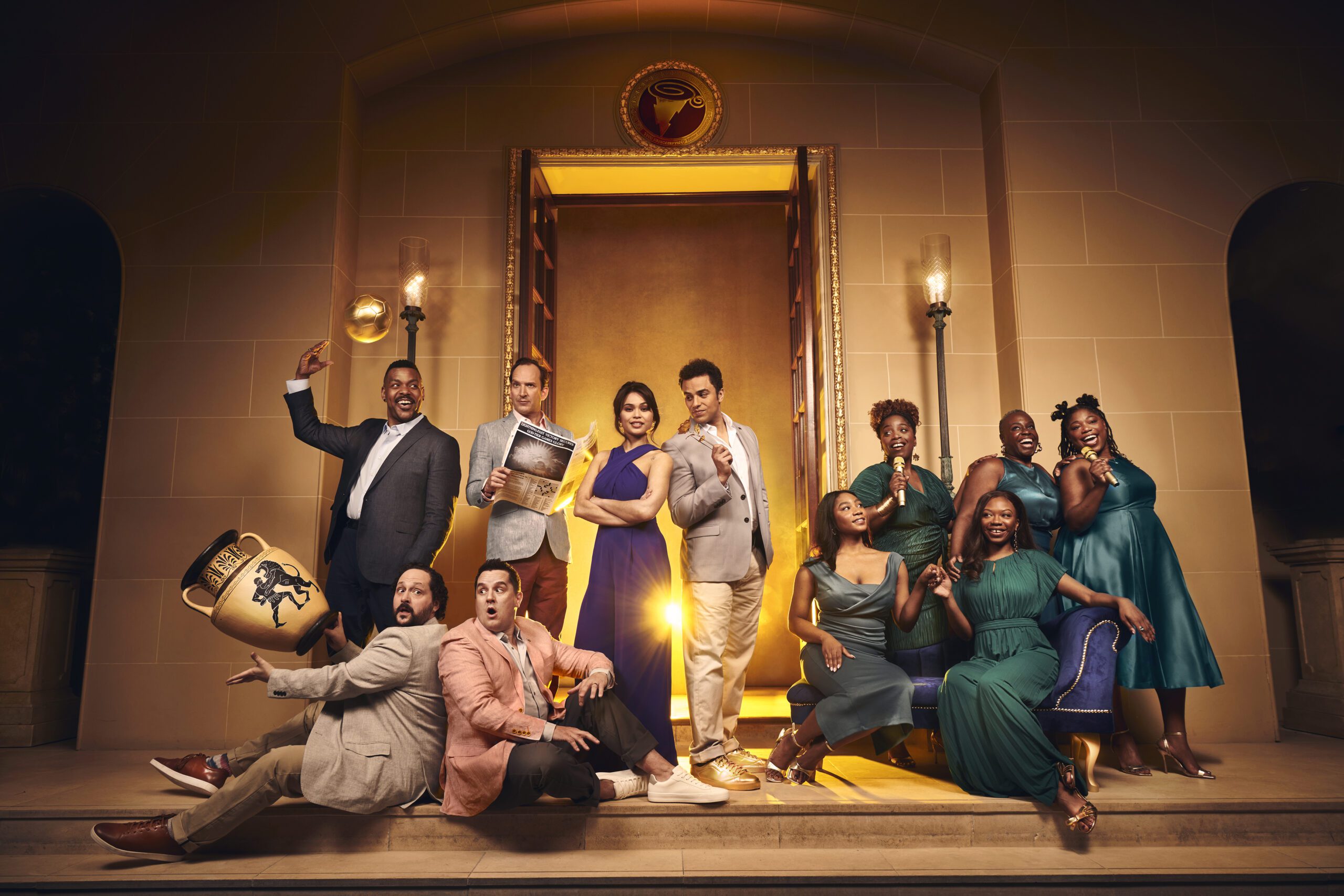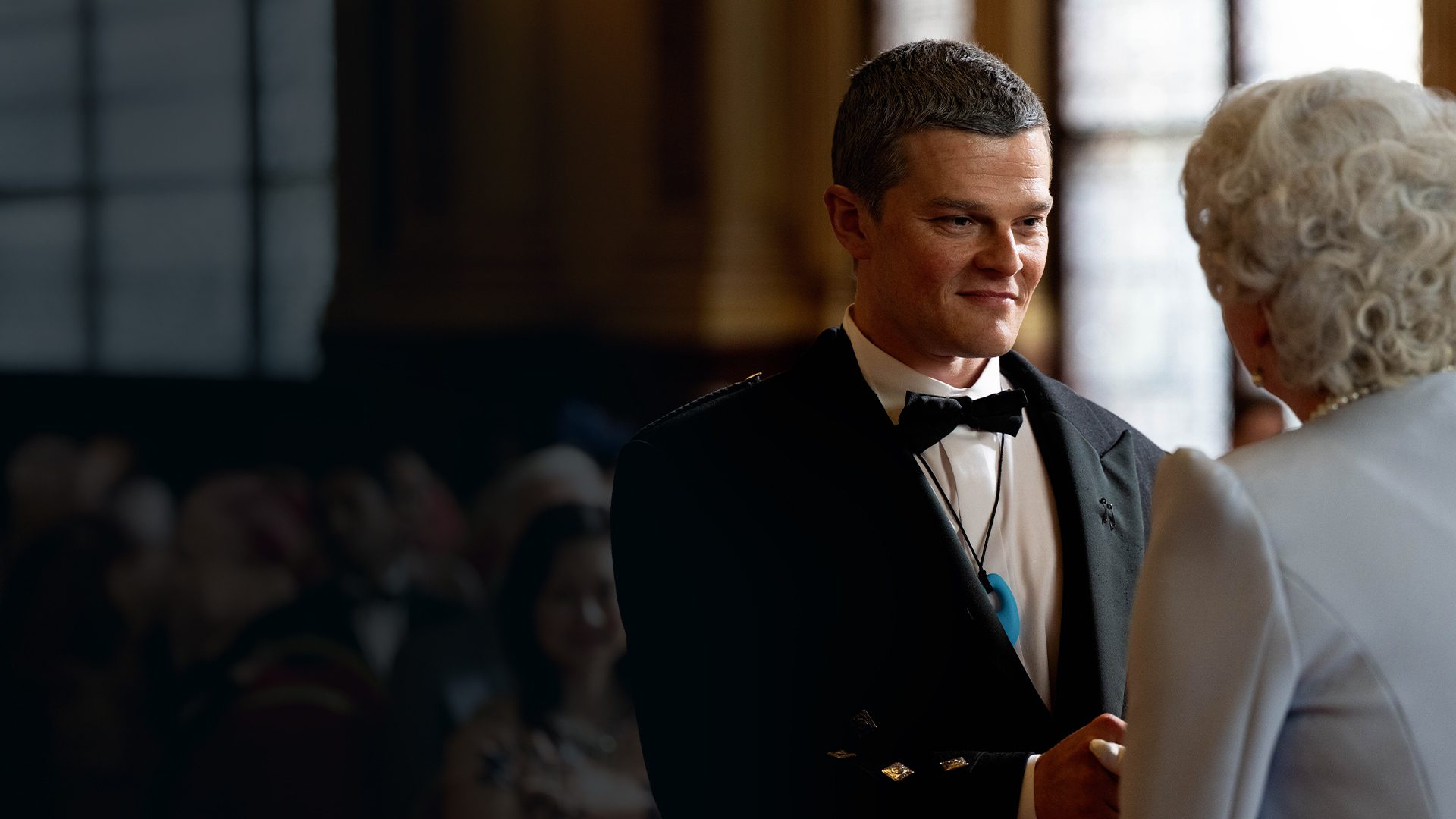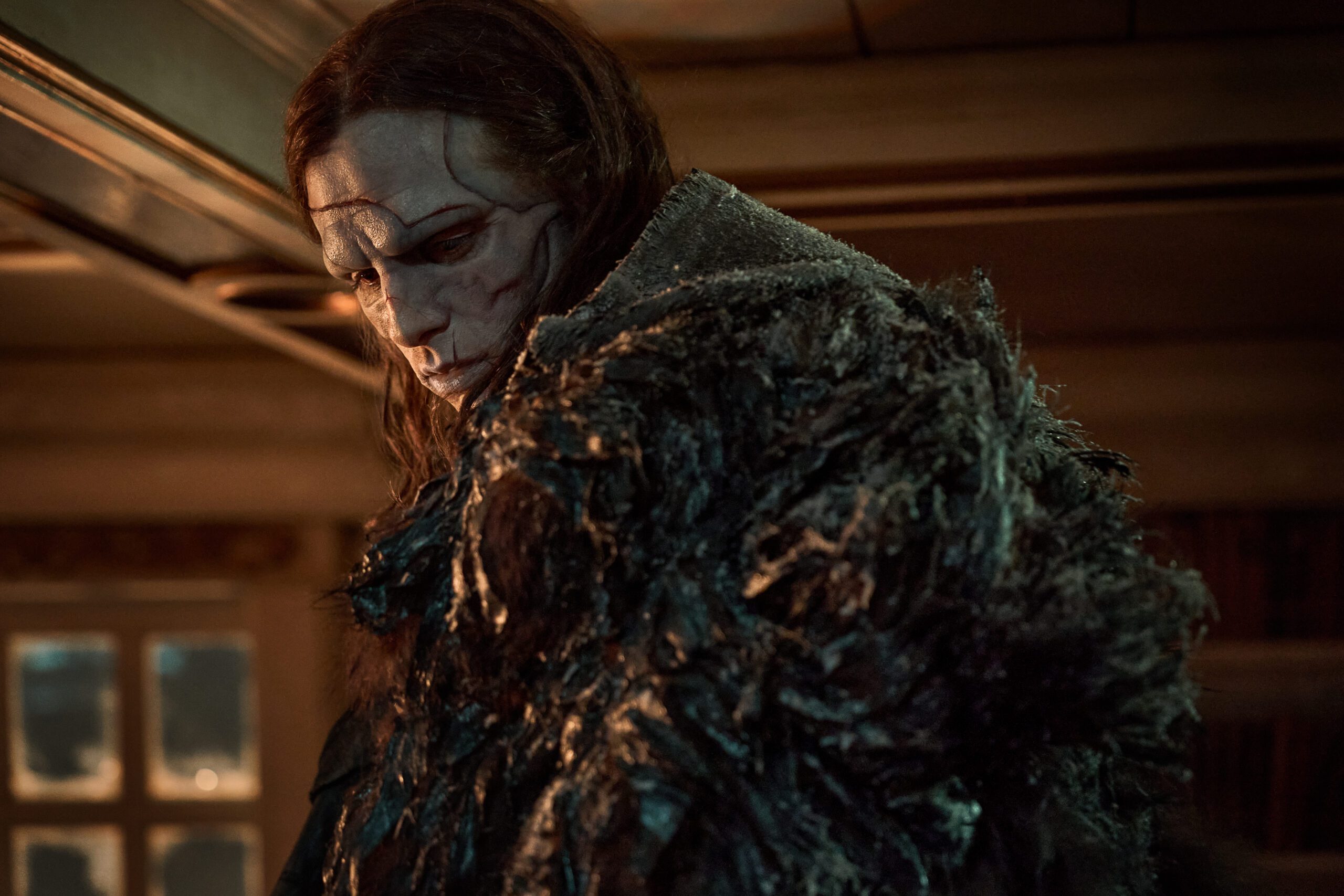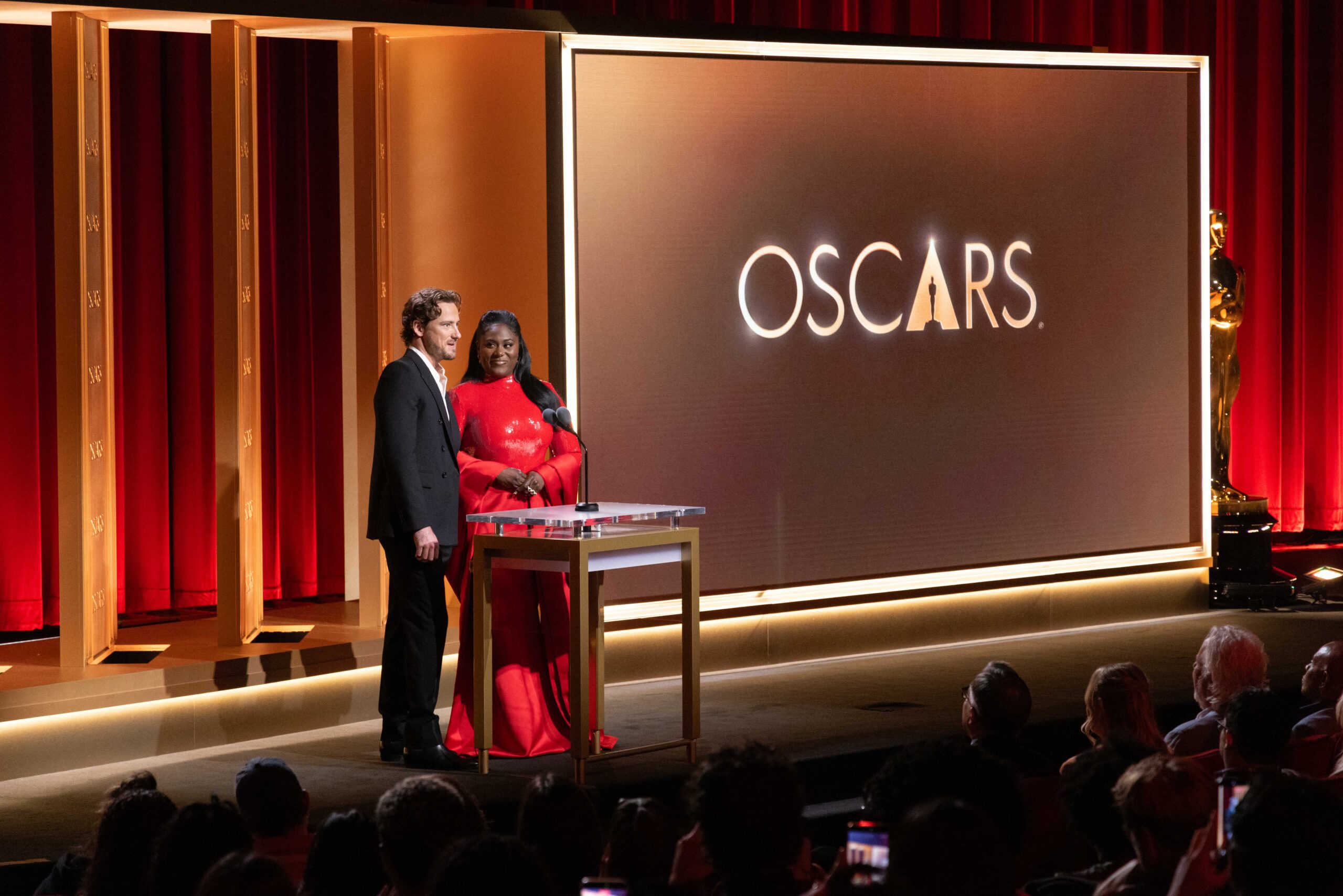Performer Luke Brady on landing his Hercules role, how he takes care of his voice and the differences between stage and screen acting.
Luke Brady makes a heroic return to the West End stage in the iconic leading role of ‘Hercules’ in Disney’s latest London-based musical.
First he captivated audiences with his powerful performances as ‘Moses’ in The Prince of Egypt and ‘Anthony’ in Sweeney Todd: The Demon Barber of Fleet Street. Now, Luke steps into the sandals of a demigod in Hercules the Musical and promises to deliver the heart and humour that fans know and love from the animated classic.
As the curtain rises on a new chapter of Luke’s career, we caught up with him to discuss all things Hercules – from the mighty audition process, lessons learned along the way, to the discipline required to sustain a leading role. We also find out what audiences can expect when this vibrant musical opens at Theatre Royal Drury Lane on 6 June 2025. Here’s what he shared:
Hi, Luke! How did you first become involved in Disney’s Hercules the Musical?
Auditioning. It’s straight into the belly of the beast! Something landed in the inbox and it was just for this little story that no one knows called Hercules that’s being made by Disney, and I was being asked to go up for [the role of] ‘Hercules’. So, straight away, I already knew which song I was going to have to sing. That put a little fire in my belly.
I was doing a rehearsal for the RSC [Royal Shakespeare Company] at the time. I always feel like you’re at your strongest when you’re in work and your brain is activated and you feel like you’re in a rhythm with performance. So I left the rehearsal room one afternoon and found my way to the space and performed in front of what I call ‘the last supper panel’, where you’ve got a load of bodies sitting there staring and hoping that you’re going to bring something unique.
Less people were coming to the audition waiting rooms and more people were behind the last supper panel, and cameras were being assembled, and I started to feel like, ‘This is getting serious.’ Then, for some crazy reason, I was asked, “Can you stay behind and read with our ‘Phils’, who are going to come in and audition?” I got invited to sit behind the last supper panel in the corner as every Phil came in and out of the room and was going, “This is mad. I haven’t even got the job!” I was so confused.
I went back maybe three times after that to secure [the role] and I’ve been jumping around like a loon ever since just trying to process the information and getting on with the job.
What was your reaction when you found out you’d gotten the role?
Pure elation! It’s a huge relief after you’ve undergone months of putting yourself through it and second-guessing. You never know if it might have gone well.
You’ve got to protect yourself – that’s often the common thread that binds all of us performers. That side of you is ready to take the bad news, so when it’s good, relish it for all it’s worth, share it with the family.
What was the audition process like?
‘Go the Distance’ was the main song they wanted to hear us sing. In terms of the scenes that they wanted to see, there was one in the temple with ‘Hera’ and ‘Zeus’, which is quite similar to the animated film. The other was a scene with ‘Meg’ and the last scene was with ‘Phil’.
Two other songs are new numbers. One we performed on Britain’s Got Talent, ‘Today is Going to be My Day’. The last song was a new duet between ‘Hercules’ and ‘Meg’ in the garden called ‘Forget About It’. All these songs, they’re out there, so they’re not really a secret. It’ll be lovely to breathe new life into them for whoever comes to see [the show].
The original Disney film is such a well-loved classic. Did you draw inspiration from it at all to play your version of Hercules, or did you look to more traditional versions of the myth?
I think it’s important to want the classic, because a lot of people are going to come to see the show hoping that it does that for them. It ticks those boxes and they feel like they’ve come away with something familiar.
That was really important to me, as well as the actor in me trying to be curious and delving into Greek mythology. Some of those stories go to a lot darker places that I don’t think serve the script and the Disney ethos that we’re working for. So it’s finding that balance, really.
I went in with an open mind and heart and was receptive to our creative team and other performers.
How involved were Disney in the audition and production process?
They’re meticulous for a good reason. They’ve got a huge reputation to uphold and they deliver a top-quality product at the end of it. I’m glad that they do, because you’re left with a cast that I’m absolutely in awe of. If I’m not in a room doing a scene myself, I’m sat on the side laughing away. I’m just so proud to be a part of this new adventure. It’s really special.
Are you a Disney fan? What’s your favourite Disney film (other than Hercules, of course)?
I think it’s a rite of passage, isn’t it? Growing up, having a Disney film close to your heart. I loved, obviously, Hercules, Tarzan – the soundtrack and the score for that, the Phil Collins music! Pocahontas, The Hunchback of Notre Dame and I was a real fan of Alice in Wonderland growing up – the old classic. How long have you got? The list is long!
Disney does those classics so well. They don’t shy away from the real themes of life that you take through with you into adulthood. Even the hard stuff to digest, they’ve got a really good way of teaching us these stories. They’re timeless.
How do you look after your voice between performances?
It’s hydration and the boring stuff, really: don’t be in a loud room trying to shout over everyone.
We are a version of athletes. If you’re dancing and moving and singing, you’ve got to produce a quality performance. People have come all the way from the north or Scotland or Manchester. It might be a date or a birthday. They paid a lot of money to see the show. So, it’s important to make sure you’re as good as you can be.
For that reason, you’ve got to make sure your voice is on top form and you’re giving them the same show nine months into the run as on press night. It requires a certain degree of discipline. Eat right, sleep right. My new thing is coconut water, so I drink a lot of coconut water.
What’s your favourite moment from the show?
Currently, it’s at the end of Act One. There’s a big number sending us into the interval that just doesn’t stop. It’s a medley of ‘Zero to Hero’ that has different phases and moments. I don’t want to speak too much about it, but it’s just fireworks coming at you. Everyone who’s not on stage is in the wings, going, “Let’s go!” to get the next troop of movers on as they’re about to explode into some kind of routine.
It’s unapologetic and it honours the gospel, the funk, the soul. It’s a headbanger. You’re going to move and you’re going to feel like you’re at a party, which I think is wicked. It’s found that perfect spot between honouring the classic and the contemporary.
You’ve also been in The Prince of Egypt and Sweeney Todd on the West End. How has your Hercules experience compared so far?
We’ve already got five runs under our belt and we’ve just moved into the theatre. Being at this point ahead of time, feeling confident with what we have is incredibly exciting.
The concrete feeling of having a show – something you’re really excited for people to see – is something I haven’t experienced before. It’s always like, “Okay we’ll just find our way through previews and hopefully by press night we might have something that people walk away happy with.” We’re already at that point now. It really gives me a lot of comfort. I don’t know if I’m just getting older or a bit more relaxed. I won’t be relaxed when I’m performing! I get nervous, like everyone.
I think learning to put a bubble around yourself and to protect yourself is really important as an artist. You’re one cog in a massive machine. Beyond this wall [is] a whole team of technicians and backstage crew assembling this beast – every department working for one singular aim. Taking my attention outward and realising there is more than just what you’re doing naturally releases some of the pressure.
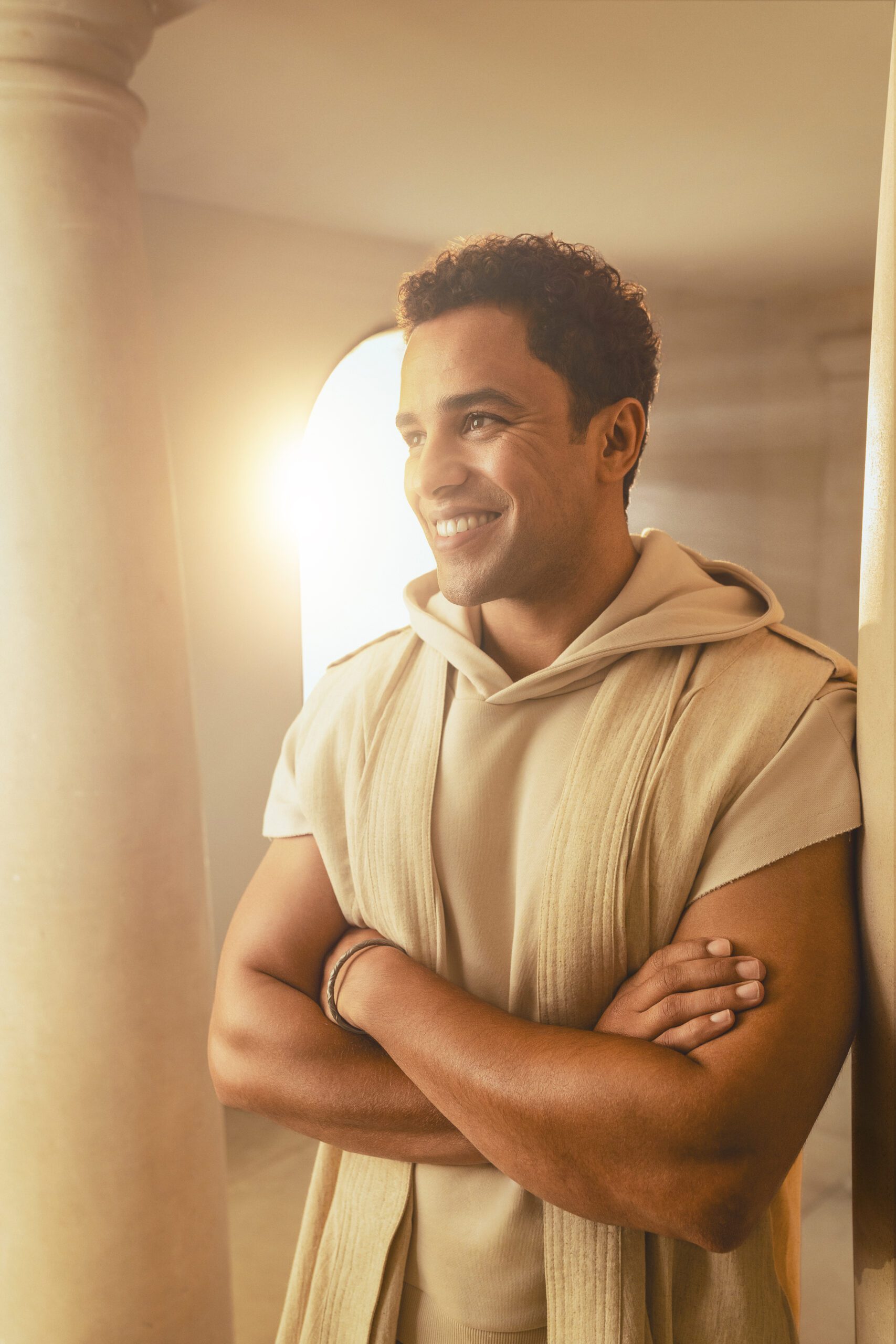
Image credit: Phil Hill/Disney
What first made you want to become an actor?
I was put into an amateur dramatic society to develop social skills. To get a bit more accustomed to how to speak with other kids and to stand and find a voice, essentially. Then something stuck.
I had a couple of classic movies – The Lord of the Rings extended editions with all the bonus tracks and hours’ worth of footage on how a film was made. I realised, “God, people get paid to do this. How do you connect those dots?” So I expanded my curiosity there and never stopped. I went to college, studied it, started working, and then went back to train again.
I’ve always been curious about how to tell stories. I know that sounds really vague and boring, but all my family are either in a trade or have regular jobs, and I got quite bored with routine-like jobs. The variety in what this profession offers is perfect really. It constantly evolves and surprises you and goes through different shifts. It’s never boring, never dull.
How did you get your first screen role in Fresh Meat?
I’d just got into drama school, and there were about four or five months until I was going to attend it. For some reason, I auditioned for Fresh Meat with a sense of, “I know where my life’s going to be for the next three years.” I hadn’t booked any telly [roles] up to that point. I remember going into the room feeling a bit more chilled and calmer [within] myself.
It’s the formula for what people need to see: you being yourself, which is the hardest thing to do. It sounds so obvious, doesn’t it? But we all go in riddled with anxiety or expectations and want to do it right. On that occasion it was fine. I knew where my life was going to be, and then I managed to bag a job. So, it was two-for-one, really.
That medium is so different to stage, and that was an education in itself. I thought it would be a lot more similar to the arc of a theatre piece, but everything was jumbled. I did my last scene on my first day, and you have to come back a lot, and you’re waiting around as everything’s set up. It was a real eye-opener into the world of television and how it all gets put together.
Did the show’s popularity change the trajectory of your career?
Those things are out of your control. No actor’s journey is the same. I did The Prince of Egypt and then I didn’t work for a year. In that time, you truly find out what your artistry is about. I found huge appreciation in writing and working with mates whom I trained with, and putting together shorts and getting back to being a student of the game. I love having a reason to work with the people I want to work with.
It’s set a new fire in me to do that stuff alongside everything else, because then you’re not waiting for the phone to ring. When you’ve actually got the opportunity to be in an audition room, you’ve got so much to talk about because you’re putting things together yourself.
How does screen acting compare to acting on stage?
I think there’s an immediacy with television. You turn up and you have a team of people that are all focused on one moment. Your ability to create a world around you is a bit more acute, I think, in theatre. We have a lot more stimulus to play around with, we have arcs, things tie through nicely. There’s a beginning, middle and end.
Whereas, in television and film, it’s all fragmented and you have to pitch your energy right. If you’re on the first day, and you’re shooting the end of the movie and you’ve lost everyone you ever loved, you’ve just got to pluck that out. You might not have had a rehearsal, whereas [in theatre] we have the luxury of rehearsing something for weeks and then stepping out there.
Live performance comes with its own pressures. You’re having to keep something fresh and give the same version of a show even if you’re feeling knackered or you’re months into it. So both [mediums] are equally challenging in their ways. I’d like to delve more into the film world in order to understand a bit more of how you can draw upon something so immediately.
Do you do anything differently when preparing for a screen character versus a character you play on stage?
I think it depends on how much time you have. Sometimes, you might audition for something and an actor’s dropped out, and you’ve got two days to get something together, so you’re depending on your instinct.
But if you have time on your side, the two are quite comparable in a sense. You can do your research and prepare for a role in a very similar sort of way, and just break it down for yourself. Every actor will have things that they do to make themselves feel comfortable and more familiar with the role. Time is a great help to give yourself that confidence to then step out and do what you do.
What advice do you have for how performers can feel like they’re part of the industry even when they’re not actively working?
It’s the people you surround yourself with that help you stay motivated and who you can motivate. Once a week, get on the phone to that mate who’s equally in the same spot and be like, “Right, what are you doing this week? By the time we chat next week, you’re going to have written a page,” or whatever it is. Small incremental steps that help you complete something. It doesn’t have to be a big scale thing, just something that makes you move forward.
I still do it with my mate, who I think is one of the most talented people I’ve trained with but hasn’t been afforded a lot of work. He knows I’m currently in a really lovely position, but he champions my work and I equally champion what he’s doing. The cards at the end of the game are reshuffled, and next time he might have pocket aces and I might have dud hands, but you help each other navigate it. If this is a marathon and it’s a career, you have to treat it like we’re in this for the long game. So having those people is fundamental.
Get out and do workshops or whatever to find people that share your ideas, that are going to keep you motivated and moving forward. Then there’s always something to work on. They might have an idea and it’s amazing what it opens up, and it stops you from going around in this hamster wheel world thinking, ‘I’m not doing anything’.
Thank you, Luke, for sharing the Gospel Truth about the show and your experience! Hercules the Musical is on at Theatre Royal Drury Lane now.
Take a look at our website for more casting stories and interviews with casting directors and agents.
